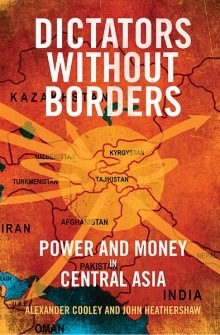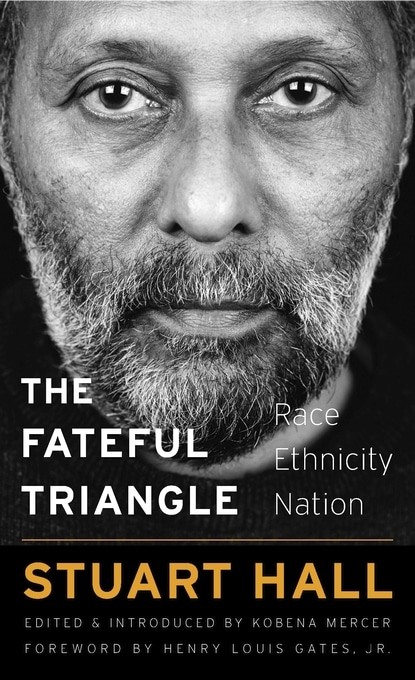 Dictators without Borders: Power and Money in Central Asia, Alexander Cooley and John Heathershaw (New Haven: Yale University Press, 2017), 312 pp., $25 cloth.
Dictators without Borders: Power and Money in Central Asia, Alexander Cooley and John Heathershaw (New Haven: Yale University Press, 2017), 312 pp., $25 cloth.
Dushanbe, the capital of Tajikistan, has neither a Starbucks nor a McDonald’s. Vendors in the city do not accept credit cards, only local currency. High-speed Internet access is nearly impossible to find. And if there is a lingua franca, it is Russian, not English. Thus, many might conclude that Tajikistan, like much of Central Asia, has been largely unaffected by globalization.
This may be true superficially, but the notion that the region remains unglobalized and disconnected from the rest of the world is a myth—one that Alexander Cooley and John Heathershaw decisively shatter in Dictators Without Borders: Power and Money in Central Asia. The authors convincingly demonstrate how elites in Kazakhstan, Kyrgyzstan, Tajikistan, and Uzbekistan have embraced and harnessed globalization and liberalization since the fall of the Soviet Union, albeit selectively and to promote illiberal ends.
Consider for example the case of Mukhtar Ablyazov, who served in Kazakhstan’s government during the 1990s, and then cofounded a pro-reform party in 2001. After a jail term and a brief stint abroad in Russia, Ablyazov returned to Kazakhstan in 2005, became chairman of the country’s largest financial institution, and, with the help of Western brokers, used his position to embezzle billions of dollars through a multitude of offshore legal schemes. Once the bank collapsed and was effectively taken over by the Kazakh government, Ablyazov fled to London, where he owned property, to claim political asylum. Meanwhile the bank’s litigators established jurisdiction in the United Kingdom and successfully sued to reclaim some of the bank’s lost assets through foreign asset seizure. Throughout, the Kazakh government extensively used and misused Interpol’s Red Notice system to track down Ablyazov and his associates across Europe.
This complicated case illustrates the various ways Central Asian elites have taken advantage of financial, political, and legal globalization when it suits their interests. Importantly, though, it also shows the extent to which Western institutions and intermediaries are complicit in this process: they not only enable capital flight and money laundering but also help extend the long arm of the authoritarian state in checking exiled political opposition.
The authors point out that the conventional wisdom that Central Asia remains isolated is not only wrong but also potentially hazardous, as it can lead to bad policy. U.S. and Chinese officials alike often invoke greater connectivity as a means of improving development in the region, as typified by China’s Silk Road Economic Belt initiative. But, as the authors show, this focus on greater connectivity by itself may only further entrench the corrupt practices already occurring.
Few if any of the phenomena detailed in Dictators Without Borders are unique to Central Asia. Still, the authors deserve high praise for making an often-overlooked region the sole focus of serious scholarly inquiry, dispelling an array of misperceptions and proposing a number of commonsense policy recommendations along the way.
 The Fateful Triangle: Race, Ethnicity, Nation, Stuart Hall, Kobena Mercer, ed. (Cambridge, Mass.: Harvard University Press, 2017), 256 pp., $25.95 cloth.
The Fateful Triangle: Race, Ethnicity, Nation, Stuart Hall, Kobena Mercer, ed. (Cambridge, Mass.: Harvard University Press, 2017), 256 pp., $25.95 cloth.
Article 1 of the Universal Declaration of Human Rights boldly asserts that “all human beings are born free and equal in dignity and rights,” and Article 2 deems that all humans are entitled to human rights regardless of “distinction of any kind, such as race, colour, sex, language, religion, political or other opinion, national or social origin, property, birth or other status.” The increasing visibility of white supremacy and nationalism in Western countries over the past few years has been a disturbing reminder of how aspirational rather than descriptive these declarations are. The Fateful Triangle: Race, Ethnicity, Nation is the timely first publication of Stuart Hall’s W. E. B. Du Bois Lectures delivered in 1994 at Harvard University. These three lectures remain as relevant as ever, as they examine the pervasive role of difference and discourse in three concepts that are crucial for the maintenance and modification of the unequal power relations that govern our world.
Hall uses a discursive method of deconstruction to show how conceptions of race, ethnicity, and nation can be broken down to signify difference, reinforcing a narrative of “us” versus “them.” The first lecture recalls Du Bois’s establishment of race as a social rather than biological concept and grapples with its prevalence in human history. Through a remarkably thorough and clear discussion on the complex role of language in constructing difference, he argues that “race is a discourse” (p. 45) that makes possible a certain “chain of equivalences” (p. 63) between physical differences and social differences. The second lecture examines how the word “ethnicity” is used differently from “race,” but notes that both behave as “sliding signifiers”—that is, the characteristics they each encompass slide to signify who the “us” and the “them” are. The final lecture on “nation” examines the crisis of identity that nations have experienced and continue to experience as a result of globalization and worldwide migration. Nations establish a collective identity that is often “constructed across difference and through difference” (p. 139), and attempt to make the political and cultural congruent.
The strength of Hall’s insight is his ability to clarify terms that are often difficult to define and that permeate current political debates. This clarity, however, does not detract from the complexity that these topics bring with them. One notable example is the seemingly contradictory effects of capitalism, which according to Hall both promotes homogeneity and relies on the proliferation of differences. In an increasingly globalized world where identity is often a cause for conflict, Hall’s explication of how society’s discursive use and understanding of race, ethnicity, and nation can inadvertently perpetuate systems of inequality has never been more important.
More in this issue
Spring 2018 (32.1) • Review
The Global Health Crisis: Ethical Responsibilities by Thana Cristina de Campos
In this book, Thana Cristina de Campos focuses on identifying the moral responsibilities of nonstate actors, particularly the pharmaceutical industry, in the field of global ...
Spring 2018 (32.1) • Review
Ethics in an Age of Surveillance: Personal Information and Virtual Identities by Adam Henschke
This book presents a philosophically sophisticated examination of metadata collection and the ethical issues that it raises.
Spring 2018 (32.1) • Essay
China and the Future International Order(s)
China sees no need for, and hence does not seek, fundamental transformation of the existing order. Rather, it seeks piecemeal modification.